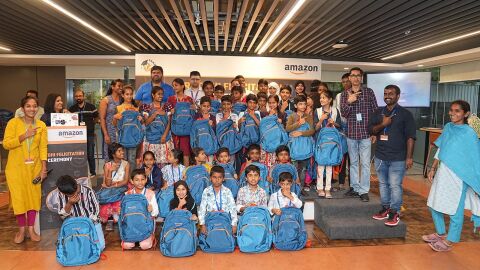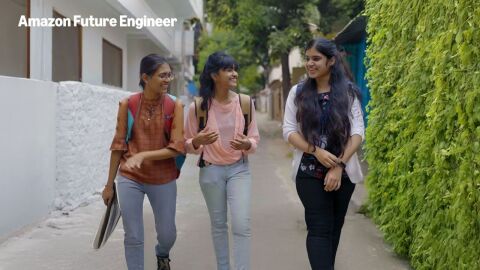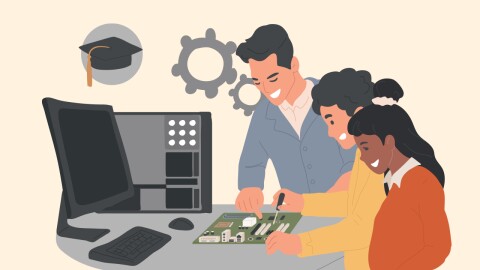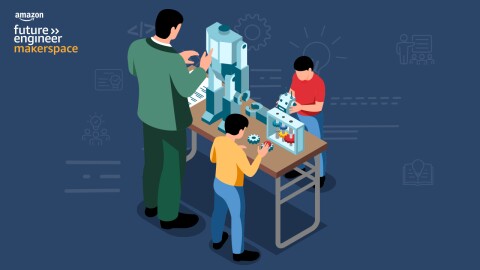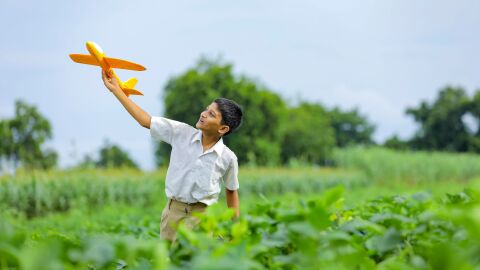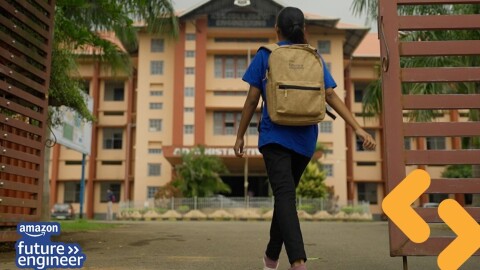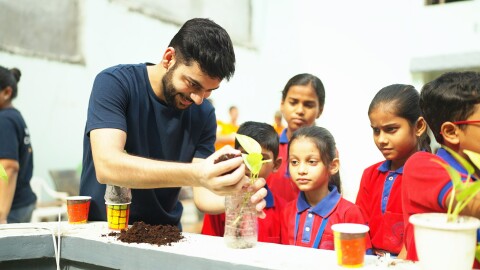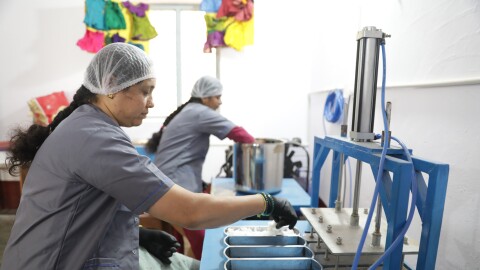Are traditional skills like tailoring, embroidery, and painting viable means to sustain one's livelihood? Amazon’s community engagement programme is helping women from lower-income groups with exactly that. The initiative aims to empower women and resolve livelihood challenges by leveraging government schemes and skill training across various sectors. These moving stories of women who overcame obstacles through skill training show how they are now taking big strides towards financial independence.
Meet Kavita, who hails from Haryana’s Gurgaon district and lost her husband last year during the pandemic. Her family was in grave financial crisis, and she was desperate to find a job. That’s when she heard about Amazon’s community engagement programme in New Delhi. There, she learnt cutting and stitching over a three-month period and is now a skilled tailor. She cannot just stitch suits, palazzo pants, and blouses with ease, but is also a sustainability warrior who uses cloth scraps to make functional garments. “When I lost my husband last year, our economic condition became very unstable. I joined the training program to become independent, and the training sessions came as a blessing. I now run a boutique full time, which gives me an average income of Rs 10,000 a month for groceries and pocket money for the children.”
Kavita’s story is a ray of hope during a time that has been especially challenging for women. Between April and May 2020 — at the peak of the lockdown — 43% of women lost paid work compared to 35% men.
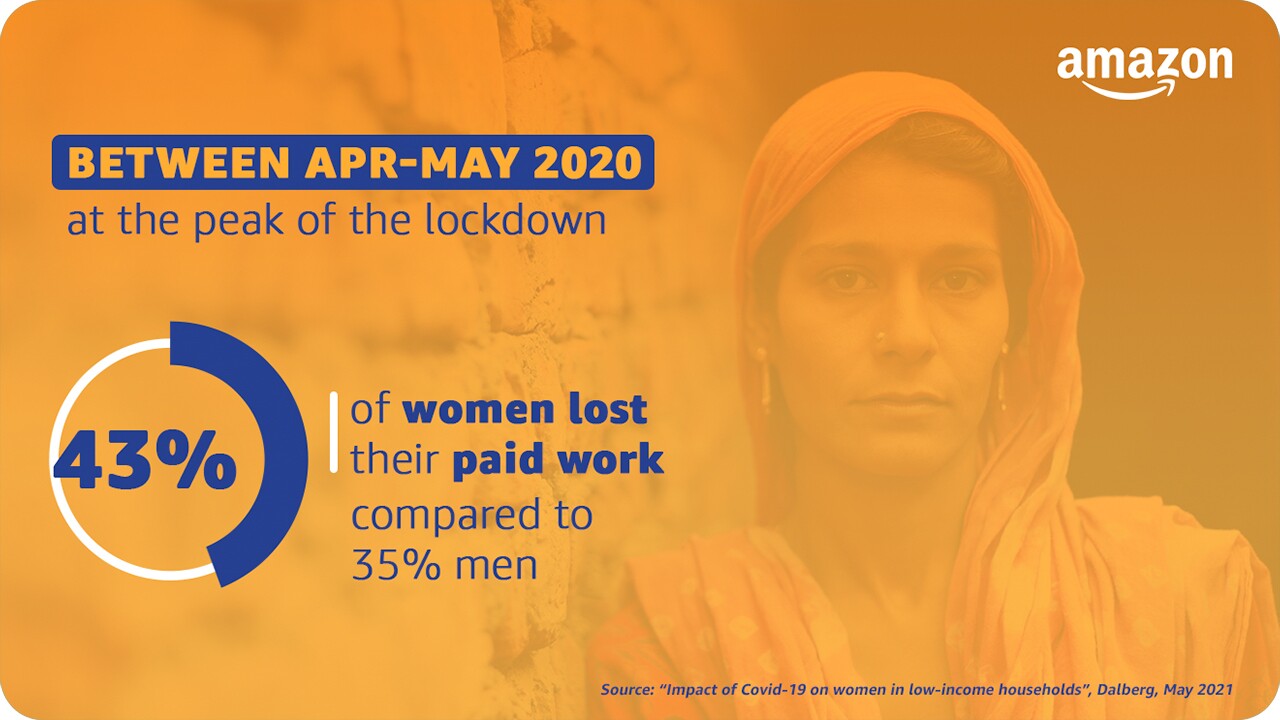
The increase in care and household responsibility was particularly marked among women in households with more than 5 members (45% stated an increase in care responsibilities) compared to women in households with fewer than 5 members (36% saw an increase in care responsibilities).
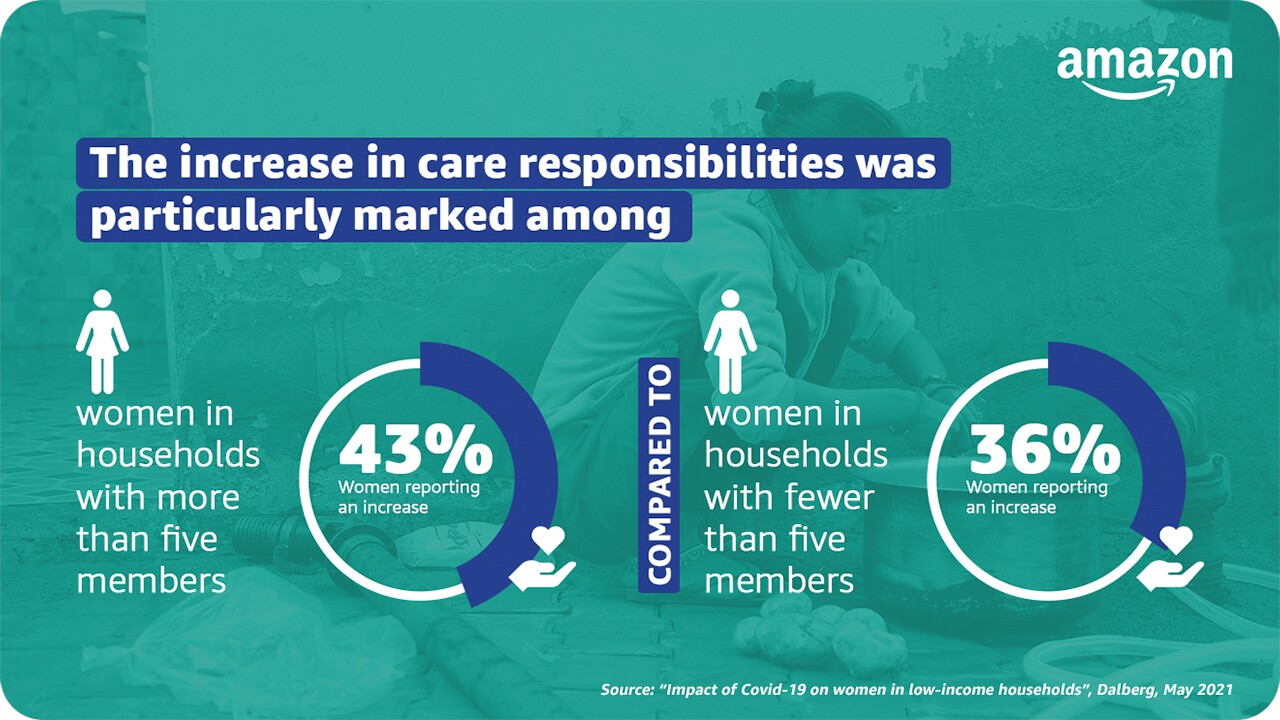
According to a report by Dalberg, during the peak of the lockdown, the pandemic resulted in job and income losses for an estimated 43 million women (57% out of the 76 million who were previously employed).
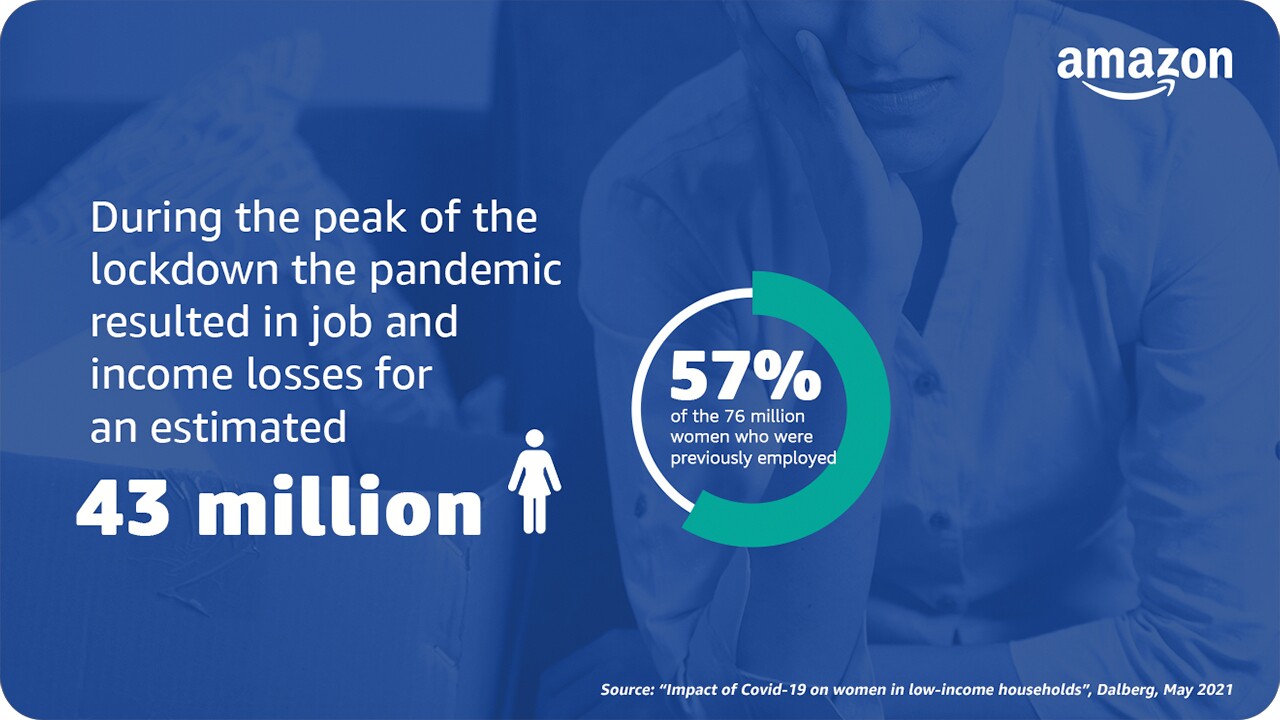
Just like Kavita, millions of women across the country are still struggling to make ends meet. They often find themselves entangled in societal cliches and stereotypes, which dictate that girls and women should focus on household responsibilities and look after of their families. Societal norms make it difficult for women to become breadwinners, even if they're inclined to do so.
In a different corner of the country, Mamta Mondal, who hails from West Bengal's Howrah district, is struggling to break these stereotypes. The daughter of a daily wage labourer, Mamta was troubled seeing her father toil endlessly. His old age made it difficult for him to continue and he eventually had to quit, leaving the entire burden of the family on his brother. When Mamta offered to help, her father dismissed the idea. But her life took an interesting turn when she enrolled herself in Amazon's community engagement programme. The community centre in Kulgachia worked with Mamta to help identify her interest areas, and in three months she had learnt the art of jewellery making and is now an earning member of the family.
Over the past four years, with support from NGO partners such as American India Foundation, READ India and Centre for Catalyzing Change, Amazon's community engagement programmes have brought steady change to the lives of over 70,000 women like Kavita and Mamta. Even during the pandemic, the impact continued to spread because the community need was so severe.
Geetha N, who hails from a town not far from Bengaluru, is a homemaker living with her husband, in-laws, and four children. She struggled to make ends meet and was unable to provide necessities for her family with her husband's earnings from running a chicken stall. She learnt about the community engagement programme and took 80 sessions on tailoring. Today, she is a sewing trainer and also has a strong grip on her family's finances. She earns Rs. 10,000 each month from the new skills she has acquired, and also saves Rs. 3,000 each month. Says Geetha, "I am now much more social and outgoing as I have the confidence to interact with people."
Like Geetha and Kavita, the programme continues to impact many married women across the country by making them self-sufficient. It is also helping young girls carve out a path for their lives even as they pursue their education. Take the case of Niveditha S, a student pursuing graduation in Tamil Nadu's Pudhuvoyal village. Coming from an economically weak background, Niveditha was on the lookout for ways to earn while pursuing her studies. She signed up for a 14-day workshop that included painting, workplace ethics, and customer engagement training within the Amazon community engagement programme, and Niveditha now earns up to Rs. 8,000 a month while pursuing her studies. What's inspiring is that Niveditha is also able to help her parents.
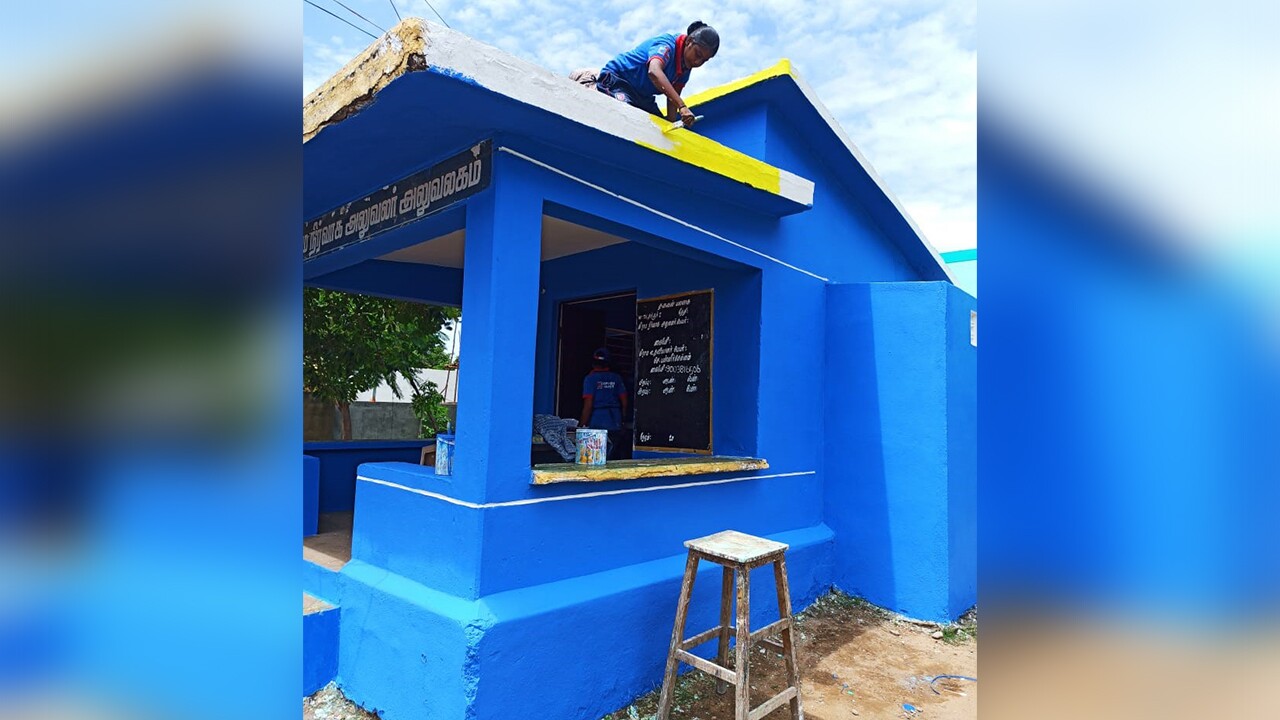
Poheli Bera, from Chandipur village in Howrah, says, “I have stopped holding myself back and I’m becoming more sound in handling finances. My family has started valuing my opinions and respecting my decisions. They now see me as an empowered and self-reliant person.”
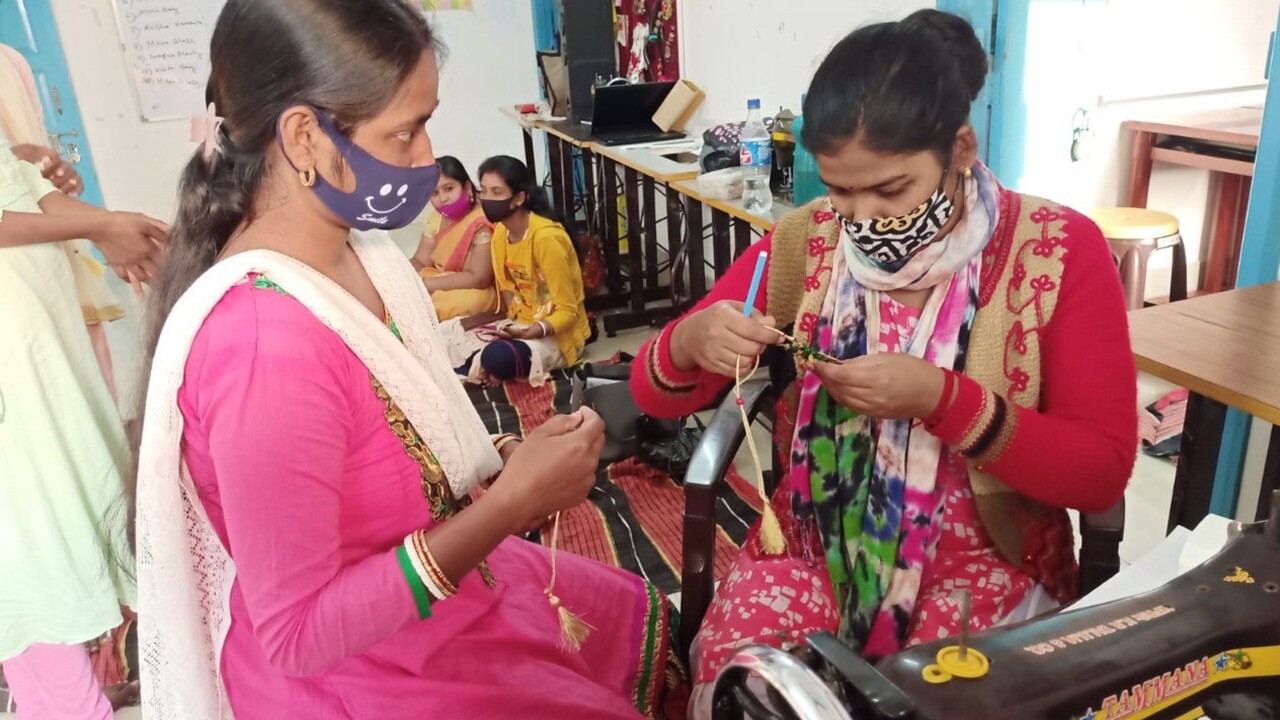
This attitude is echoed by Mamta Mondal, who says, “My family says I have become more articulate and confident with the exposure I got through the training. They appreciate my work as a trainer in the community centre.” Her fondest memory remains of the time she was hired as a trainer, and says, “Seeing my dedication and expertise in jewellery making once the programme ended, I was hired as a trainer for the community centre. This is the best thing that's happened to me yet.”
Kavita, who runs a boutique, now earns about Rs. 10,000 per month in stark contrast to the Rs. 1,000 she previously earned. She wants to say to women like herself, “Please don’t be dependent on anyone except yourself. Find productive ways to spend your time and utilise it to learn new things. Identify skills that can offer you opportunities to become financially independent.”
Most of these women are now empowered with their newfound ability to earn an income. The women participating in these programmes also speak with pride about how they have emerged as influencers and leaders in their communities.



